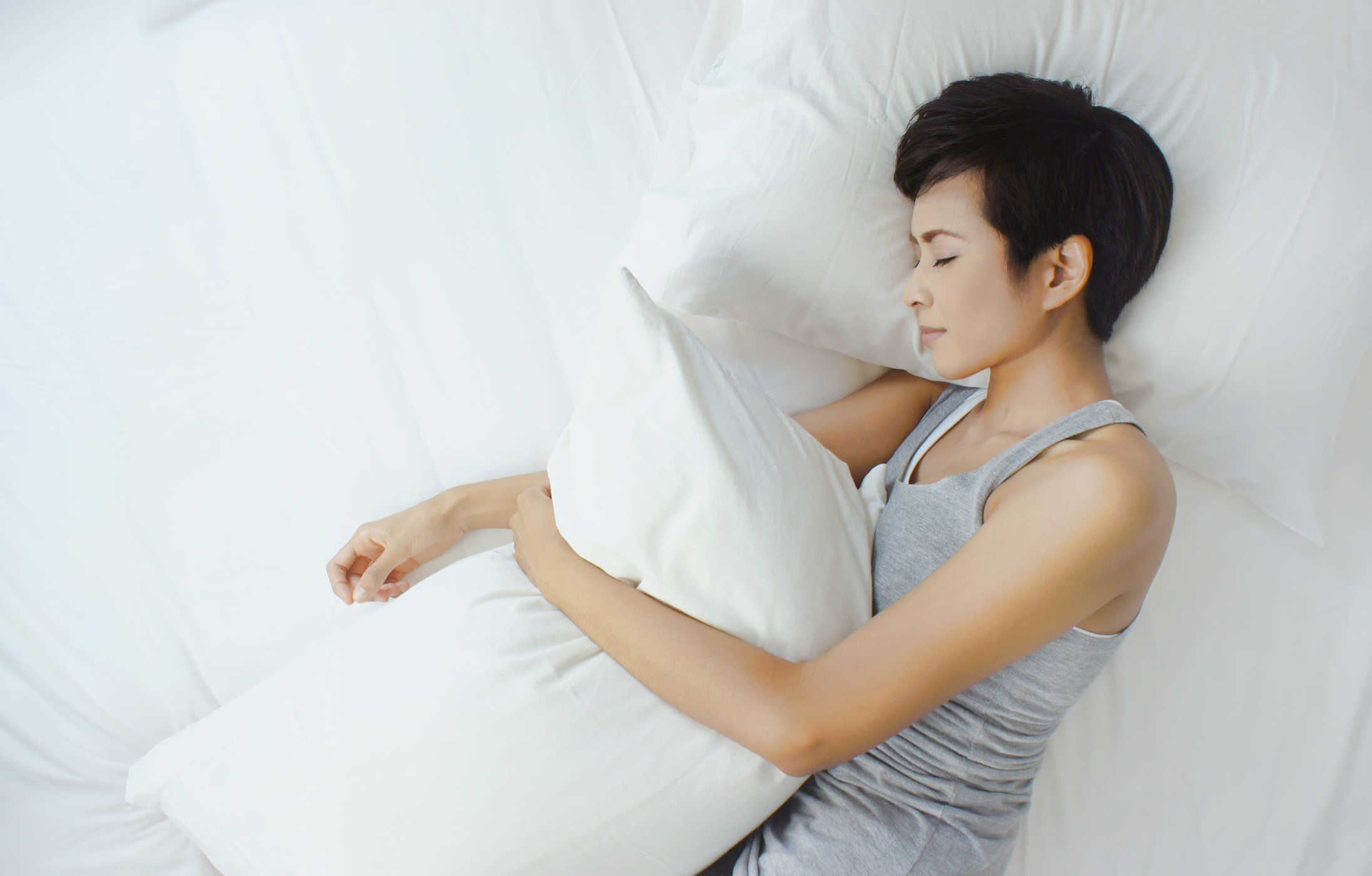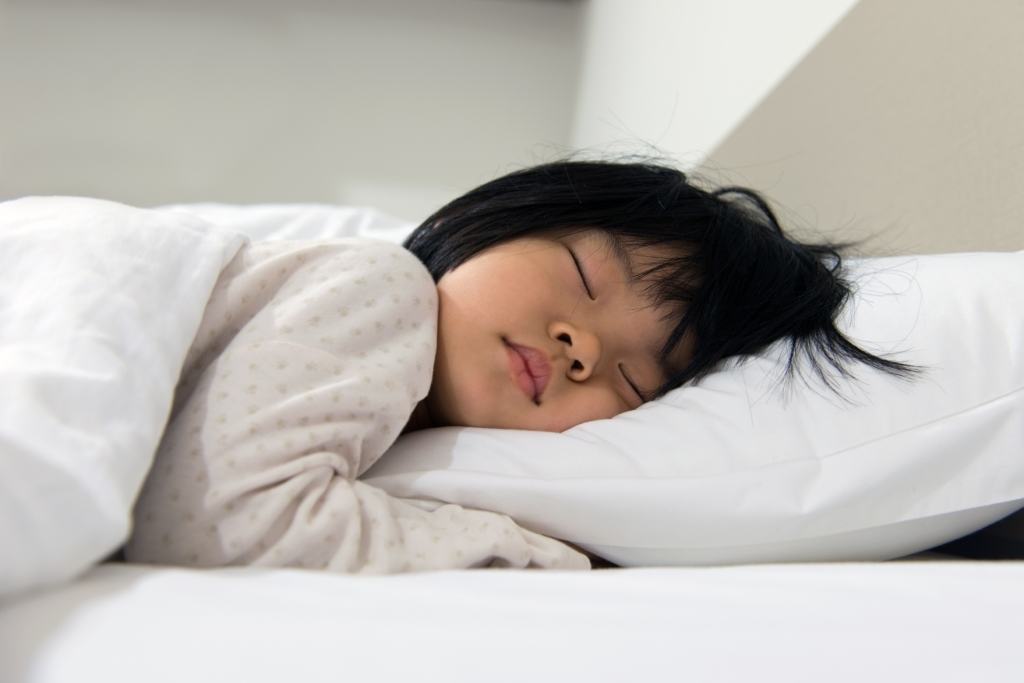Contents:
- Medical Video: Sleep and Chronic Pain: How to Rest Well
- How many hours a day does one have to sleep?
- What is the connection between sleep and pain?
- What happens if I don't get enough sleep?
- How can I get enough sleep?
- Take medication and therapy
- Change in sleeping position
- Look for your comfort zone
- Loosen muscles
- Create a supportive atmosphere
- Stop thinking about pain
- Take supplements
- Get help from a doctor
Medical Video: Sleep and Chronic Pain: How to Rest Well
Have you ever woken up in the middle of the night and can't sleep again? Imagine you suffer from chronic pain and cannot sleep. That is even 10 times more difficult. Good sleep is very important so that the body and brain function during the day. If you don't get enough sleep, your body's performance will decrease and the brain will lose focus. Here's what you should know to get good sleep if you have chronic pain.
How many hours a day does one have to sleep?
Depending on your age, the amount of sleep you need is different. However, the average amount of sleep for adults is at least 7-9 hours per day.
When you sleep, the brain is preparing for the next day. Getting enough sleep helps the brain function properly. A good night's sleep can improve learning, problem solving skills, increase attention, the ability to make decisions, and increase creativity.
The body uses sleep time to repair damaged tissue in your body. Sleep helps balance the body's hormones and triggers hormones that build muscle and promote healthy growth and development.
What is the connection between sleep and pain?
Chronic pain is a common condition in more than 60 million people. Sleep and disease are often connected and can be a vicious circle. Pain can wake the patient at night. And lack of sleep can make the pain worse.
What happens if I don't get enough sleep?
If you have a deadline to meet at work or you have an exam the next day, the first thing you sacrifice is sleep. You realize that sleep deprivation affects how you think, react, work, study, and get along with other people. People who lack sleep are at high risk of health problems. Prolonged sleep deprivation can cause medical conditions, such as obesity, diabetes, heart disease, kidney disease, high blood pressure, and stroke.
Not getting enough sleep can make you more hungry and have trouble making decisions, solving problems, controlling emotions and behavior, and overcoming change. This easily leads to depression, suicide and reckless behavior.
Lack of sleep at night can cause micro sleep. Micro sleep is a time of short sleep during the day. You cannot control your micro sleep. It's like your brain is sleeping, but you are physically awake. Micro sleep is a reaction to lack of sleep, this is dangerous if you are driving or operating heavy machinery.
How can I get enough sleep?
It may be difficult to get quality sleep when you wake up three or four times because of pain. However, these are things you can do to ensure better sleep.
Take medication and therapy
People with chronic pain sufferers have to take lots of drugs to control their pain. So they might not want to take more drugs to get a good sleep. But this method is effective for sleeping chronic sufferers. Some therapies such as acupuncture, electrical stimulation, nerve blocks, or surgery can be used to reduce pain in order to sleep better.
Change in sleeping position
Patients with back or neck pain may not sleep on their stomach. This position can cause your spine to curve and make the pain worse. Sleeping on your back with a pillow under your knees usually helps correct the pain by taking pressure from the spine.
If you often move and roll during sleep, you can use a body pillow to prevent you from moving and rolling. You can put a pillow between your knees to keep them from touching each other. There are pillows designed for people with neck pain. If you are on a long flight or if you plan to sleep while riding in a car, you should use a neck pillow to support your neck and prevent side to side.
Your sleeping position is important and must consider other conditions such as heartburn or GERD. Check with your doctor before switching your routine.
Look for your comfort zone
Some people have sleep problems because they cannot ignore the pain. This can distract them from falling asleep. To clear your mind to sleep better, you need to find your comfort zone. You can do simple things, like this pain relief exercise:
- Find a comfortable position to lie down.
- Focus on your breathing. Do a few movements in a few minutes.
- Don't get hung up on every thought that comes to mind. Let the mind pass.
- Set yourself in a neutral zone of mind and focus on your breathing.
- We know that the brain and body are connected, and stress, depression and anxiety play a role in how we perceive pain. Try to let yourself experience this experience.
Loosen muscles
Take time to pamper yourself with a hot shower for a few minutes before going to bed. While resting, relax your body and mind. You can turn it into a relaxation ritual with soft, soothing music or aromatherapy (try lavender to help you sleep). By relaxing, the muscles can break the cycle of pain, and you can fall asleep more easily.
Create a supportive atmosphere
Some people sometimes ignore their sleeping environment. What you don't know is, changes in your sleep routine can make a big difference in how well you sleep. By preparing the right environment, you can fall asleep and stay asleep easily.
- Voice control around. Some people need calm to sleep, some people must have an accompaniment to sleep.
- Refrain from playing with a telephone, TV or laptop when you are in bed. Your bed is only for sleep and sex.
- Go to sleep and wake up at the same time every day, even on weekends.
- A short nap during the day is okay, but avoid long sleep for 4-5 hours in the afternoon or evening.
- Don't drink coffee, alcohol or tea before going to bed.
- Don't work 3-4 hours before going to bed. Adrenaline from work will prevent sleep.
- Don't share a bed or room with a pet.
Stop thinking about pain
Spending time thinking about pain can bring other negative thoughts that affect your sleep. Keep your mind positive throughout the day by doing hobbies or reading books or magazines, as long as it distracts you from pain and makes it easier to sleep.
Take supplements
Some supplements can facilitate sleep, such as melatonin. Most likely you have used a lot of pain control drugs. So, seek advice from your doctor or pharmacist before taking supplements.
Get help from a doctor
Some conditions can cause sleep deprivation, such as sleep apnea and insomnia. This condition, plus pain, can make you unable to sleep. Talk to your doctor and treat this condition to eliminate the cause of your sleep insufficiency.
Chronic pain may be something you have to go through, but not so with lack of sleep. If you have sleep problems that cannot be overcome, even with medication and lifestyle changes, you should consult a doctor to see if something can be done to help you sleep better.












